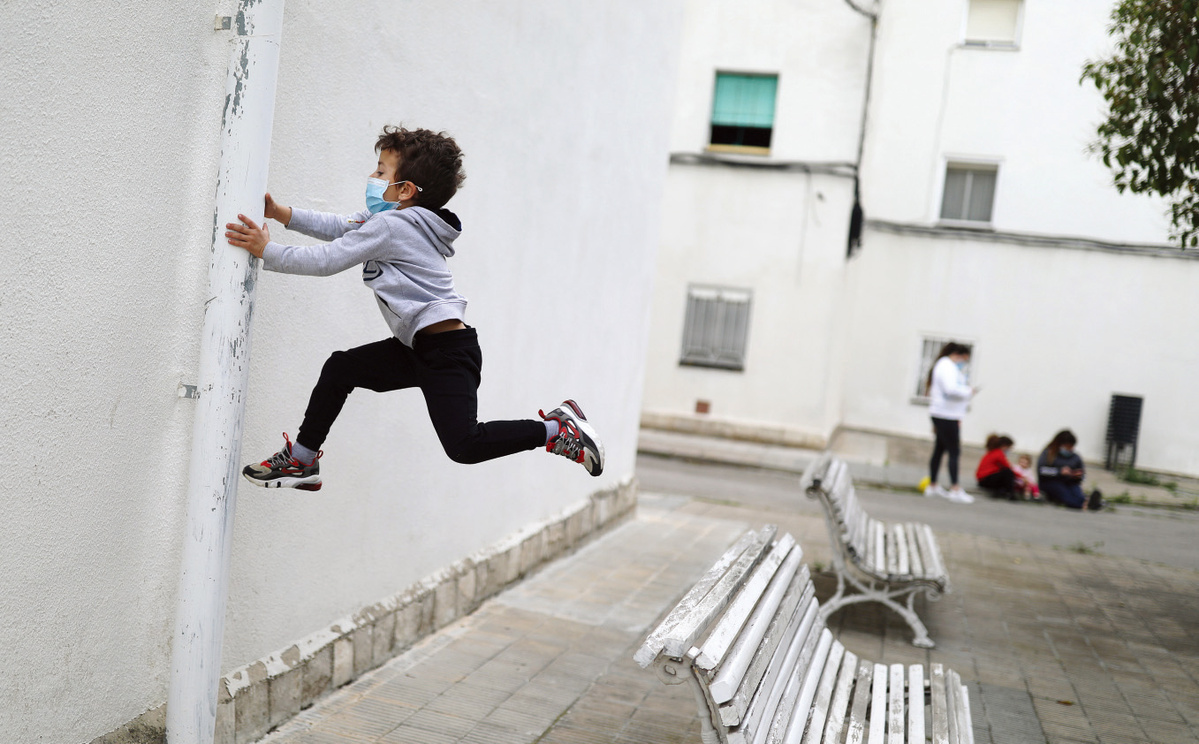European nations plan to start slow relaxation of lockdown restrictions


With cases of novel coronavirus falling in some European countries, nations are beginning to take tentative steps toward easing lockdown restrictions in an effort to limit damage to their economies.
Italy has outlined plans to ease the strict restrictions it imposed seven weeks ago to curb the spread of the novel coronavirus.
Prime Minister Giuseppe Conte said lockdown measures would be relaxed from May 4 as it recorded its lowest daily death toll since mid-March.
People will be allowed to visit their relatives in small numbers, and parks, factories and building sites will reopen, but schools will not restart classes until September.
There were 260 new virus-related deaths on Sunday, the lowest daily figure since March 14.The total is now at 26,644, the highest in Europe.
People will be able to travel inside their own regions of Italy, while hairdressers, bars and restaurants will reopen for takeaway services from May 4 and are set to open to dine-in customers from June 1. Other retailers, museums and libraries will reopen on May 18.
There is still no date yet for Italy's Serie A soccer league to resume, but individual athletes can begin training again, and people are allowed to do sports outside their homes.
Conte said social distancing would continue for months to come, and church services would continue to be banned.
"If we do not respect the precautions the curve will go up, the deaths will increase, and we will have irreversible damage to our economy," Conte said.
Italy has confirmed 197,675 cases of the virus, according to data from Johns Hopkins University, which is tracking the disease globally.
Switzerland and Spain are also relaxing their measures. Hairdressers and garden centers have reopened in Switzerland, and students will return to school from May 11.
Restrictions of movement in Spain, one of the worst-hit countries in the pandemic, have been eased to allow children outside for the first time in six weeks.
Spain reported its lowest daily death toll in more than a month on Sunday when its Health Ministry said 288 people had died of the virus, the lowest number since March 20.
Children under the age of 14 were allowed to leave their homes and are now allowed outside for one hour a day. The Health Ministry said the total number of fatalities now stood at 23,190.
Fernando Simon, director of the Spanish Health Alert and Emergency Co-ordination Center, said: "For the first time in a long time, we are below 300.
"Although it may be hard to give these statistics, it's a figure which indicates a clear, positive direction in the evolution of the epidemic."
Germany-where the lockdown has been relatively relaxed-began its exit strategy last week but has made it mandatory to wear face masks outside.
Masks are now compulsory on public transport, with most states also making them mandatory when shopping. Officials are recommending people use simple coverings and leave medical masks for health professionals.
Bloomberg reported on how Germany seeks to "navigate" opening up just enough to revive the economy without "reigniting" a second virus wave. It said the nation's strategy would be watched closely by the United Kingdom, and other hard-hit countries, but added that there is a danger of overconfidence in Germany due to its relatively "fortunate" experience.
Laboratories in Germany have the capacity to conduct 136,000 tests daily, though fewer than 325,000 are conducted each week, and Bloomberg said the nation is expanding local armies of "contact tracers" to track infection chains. There are 13,000 unoccupied intensive care beds nationwide, about 40 percent of the total.
While Italians and Spaniards would never forget the "appalling" scenes that unfolded in their overcrowded hospitals, Bloomberg noted that Germany's health system was never overwhelmed by novel coronavirus cases.
In Berlin, "only" about 125 of the city's 3.6 million inhabitants have died from the disease, and nationwide there have been fewer than 6,000 recorded virus deaths, about one quarter of the total in neighboring France.
Lockdown measures in France are set to continue for now. But Prime Minister Edouard Philippe said he would propose an exit strategy on Tuesday for Parliament to vote on.





























